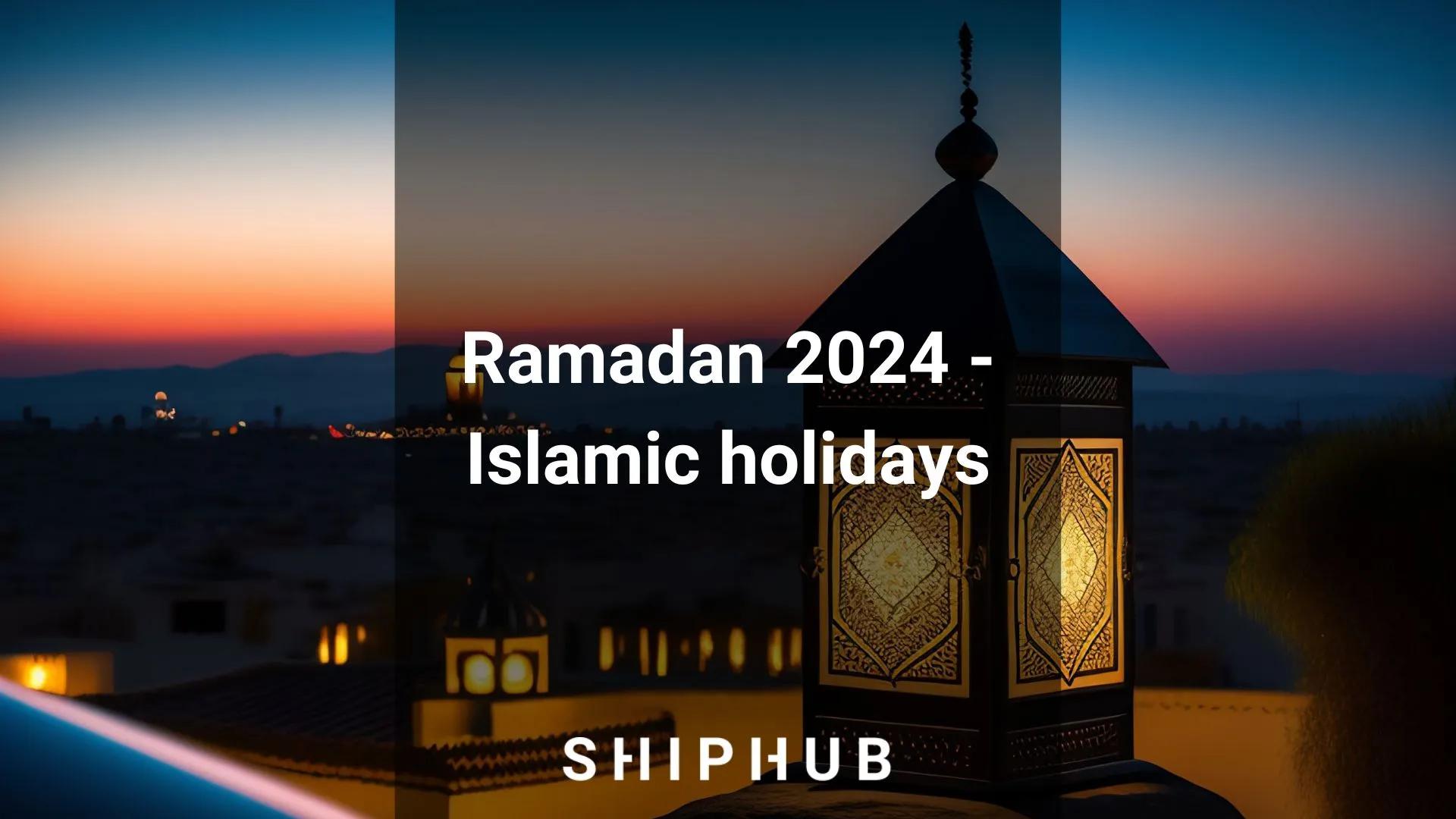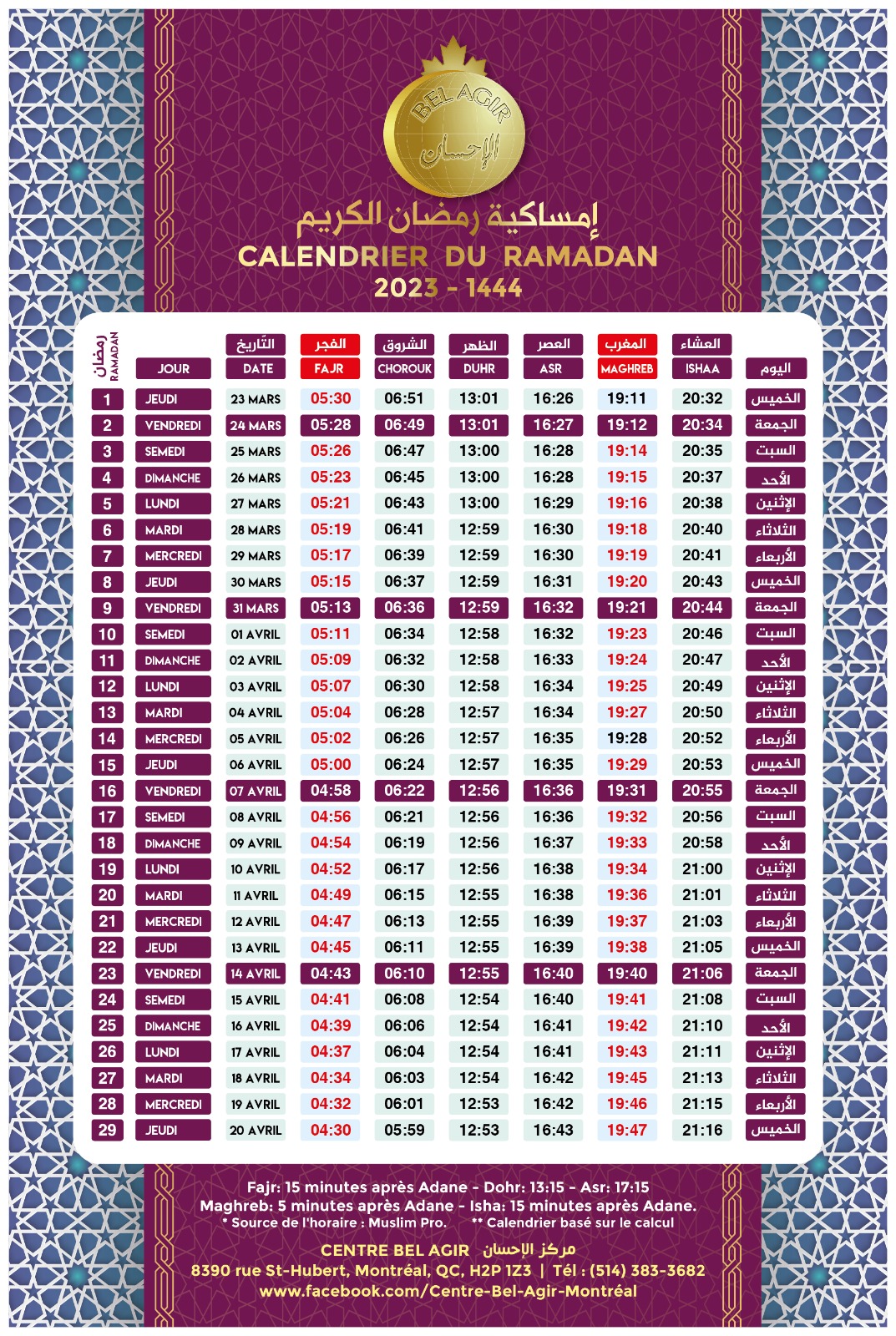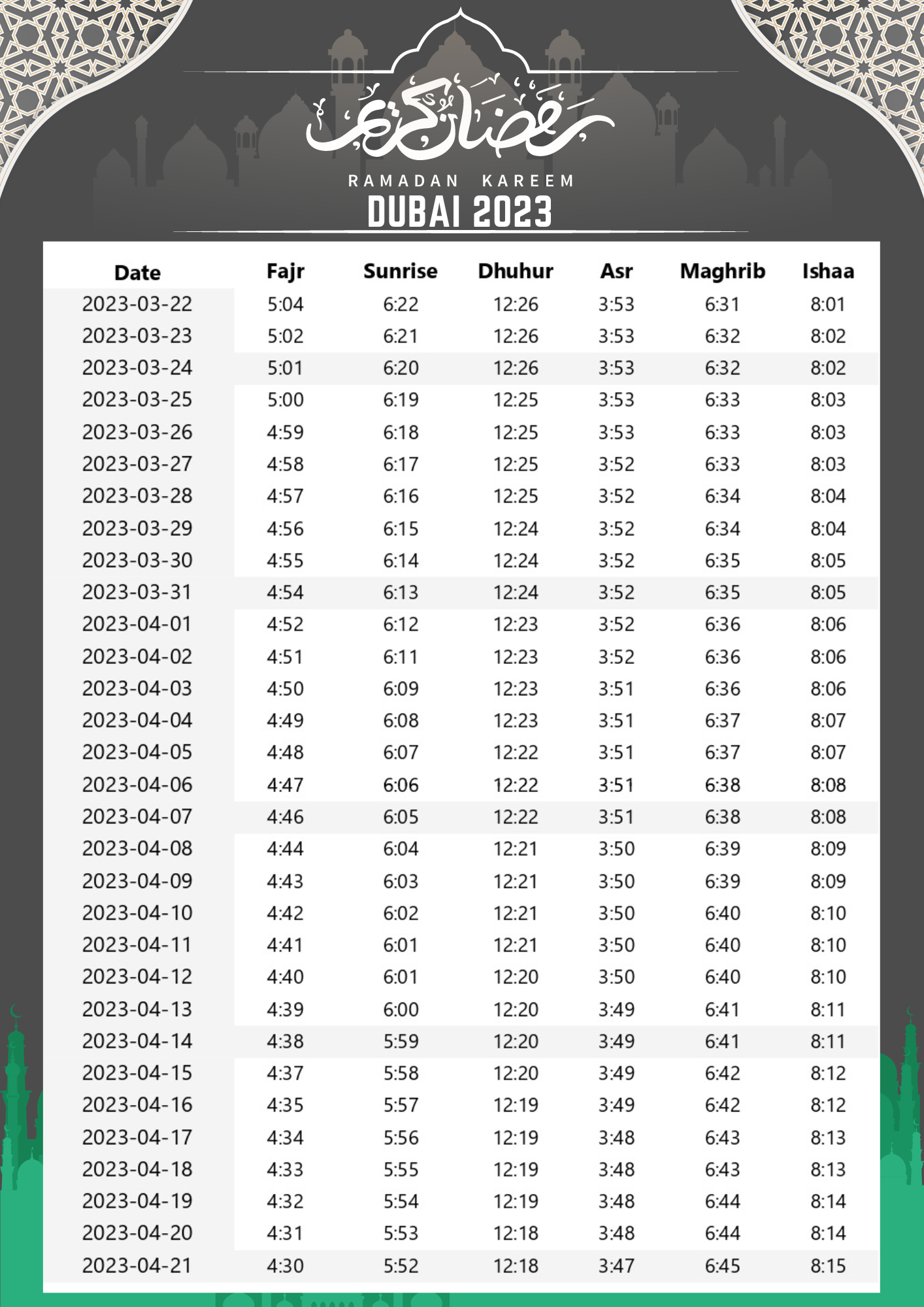Ramadan 2024: Dates, Meaning, And Spiritual Journey
Ramadan 2024 is more than just a calendar event; it's a profound spiritual journey that millions of Muslims worldwide embark upon, marking the ninth month of the Islamic calendar. This sacred period is dedicated to deep reflection, heightened devotion, and community solidarity, offering a unique opportunity for spiritual growth and renewal.
As the Islamic calendar is based on the lunar cycle, the exact start and end dates of Ramadan shift annually, making anticipation for its arrival a significant part of the experience. For 2024, the global Muslim community prepared for a month of fasting, prayer, and charitable acts, culminating in the joyous celebration of Eid al-Fitr.
Table of Contents
- How Many John Wick Movies Are There
- Jhene Aiko Daughter
- Heather Brooks
- Maisie Williams Nudes
- Shauna Redford
- Understanding Ramadan: The Ninth Month
- The Anticipated Dates of Ramadan 2024
- The Spiritual Essence of Ramadan
- Fasting: From Dawn to Dusk
- Eid al-Fitr 2024: The Celebration of Breaking the Fast
- Key Dates within Ramadan 2024
- Global Observance and Community Spirit
- Preparing for the Holy Month
Understanding Ramadan: The Ninth Month
Ramadan, often simply referred to as "the holy month," holds a unique and profound significance within the Islamic faith. It is the ninth month of the Islamic calendar, a period distinct from the Gregorian calendar used widely across the globe. This distinction is crucial because the Islamic calendar operates on a lunar cycle, meaning each month begins with the sighting of the new crescent moon. Consequently, the start date of Ramadan shifts by approximately ten days each year when compared to the solar-based Gregorian calendar.
The profound importance of Ramadan stems from its historical and spiritual roots. It is the month when the Quran, the holy book of Islam, was revealed to Prophet Muhammad (peace be upon him). This revelation marks a pivotal moment in Islamic history, making Ramadan a time of intense focus on the Quran, its teachings, and its timeless wisdom. Muslims believe that during this month, the gates of heaven are opened, the gates of hell are closed, and the devils are chained, creating an environment conducive to heightened spirituality and good deeds.
Beyond its historical significance, Ramadan is fundamentally a period of self-purification, self-control, and heightened awareness of God. It’s a time when Muslims are encouraged to reflect on their actions, seek forgiveness, and strengthen their relationship with the Divine. The spiritual discipline observed throughout this month aims to foster empathy for the less fortunate, cultivate gratitude, and reinforce communal bonds. It's a comprehensive spiritual overhaul that touches every aspect of a Muslim's life, from their daily routines to their interactions with others.
- Greyson Chance
- Superman Official Teaser Trailer
- Taylor Swift Superbowl
- Hailey Whitters
- Naomi Watts Children
The Anticipated Dates of Ramadan 2024
For those looking forward to or learning about Ramadan 2024, the dates were a key point of interest. Based on astronomical calculations and the traditional method of moon sighting, Ramadan 2024 was widely expected to commence on Monday, March 11, 2024. This tentative start date was largely aligned with the announcements from various Islamic authorities, including Saudi Arabia, which often serves as a reference point for many Muslim communities globally.
The holy month of Ramadan typically spans 29 or 30 days, depending on the moon's visibility. Following the expected start, Ramadan 2024 was projected to conclude on Tuesday, April 9, 2024. This period of fasting and spiritual devotion then transitions into the joyous celebration of Eid al-Fitr, which was anticipated to fall on Wednesday, April 10, 2024. It's important to remember that these dates, while widely predicted, were subject to the actual sighting of the moon, which can lead to slight variations.
The Lunar Cycle and Moon Sighting
The reliance on the lunar cycle for determining the Islamic calendar's dates is a fundamental aspect of Muslim tradition. Unlike the fixed dates of the Gregorian calendar, Islamic months begin with the confirmed sighting of the new crescent moon (hilal). This practice is rooted in prophetic tradition and ensures that the commencement of religious observances, including Ramadan, is aligned with natural celestial phenomena.
This method means that while astronomical calculations can provide highly accurate predictions, the official start of Ramadan is only confirmed after religious authorities or designated committees physically sight the moon. This can sometimes lead to variations in start dates between different countries or even communities within the same country, depending on local moon sighting conditions and interpretations. For Ramadan 2024, this meant that while March 11th was the widely anticipated start, communities globally awaited the official announcement following the sunset of March 10th.
Regional Variations in Commencement
Due to the moon sighting criterion, it is common for the start of Ramadan to vary by a day or two across different regions of the world. For instance, while many countries followed Saudi Arabia's expected start of March 11th for Ramadan 2024, some regions, like the USA, observed the commencement of Ramadan on March 12th, 2024. This difference highlights the decentralized nature of moon sighting and the autonomy of various Islamic bodies in making their declarations.
These regional variations are a natural outcome of the lunar calendar system. What might be visible in one part of the world may not be visible in another due to geographical location, weather conditions, or atmospheric clarity. This doesn't diminish the unity of the month's purpose but rather reflects the practical application of a religious injunction across diverse global landscapes. Regardless of the exact day of commencement, the spirit and practices of Ramadan remain universally consistent for Muslims.
The Spiritual Essence of Ramadan
Ramadan is far more than just abstaining from food and drink; it is a profound spiritual exercise designed to purify the soul and bring believers closer to Allah. The core purpose of the month is to foster a heightened sense of spirituality, self-discipline, and gratitude. Muslims spend the month of Ramadan engaging in religious prayers and activities, intensifying their acts of worship and devotion.
Central to this spiritual journey is the concept of 'Taqwa' – God-consciousness. Fasting helps individuals develop this inner awareness by detaching them from worldly desires and focusing their attention on their spiritual state. It's a time for introspection, reflection on one's actions, and sincere repentance. Many Muslims dedicate more time to reading and reciting the Quran, attending special nightly prayers (Tarawih), and engaging in remembrance of Allah (Dhikr).
Charity (Zakat and Sadaqah) also plays a vital role in the spiritual essence of Ramadan. The act of fasting fosters empathy for those less fortunate, prompting Muslims to give generously to the poor and needy. This emphasizes the communal aspect of Islam and the importance of supporting one another. The spiritual benefits of Ramadan extend beyond the individual, creating a collective atmosphere of piety, generosity, and compassion within Muslim communities worldwide.
Fasting: From Dawn to Dusk
The most prominent and widely recognized practice during Ramadan is fasting. Muslims fast from sunrise to sunset, abstaining from all food, drink, and other physical needs. More specifically, the fasting period extends from dawn (Fajr prayer time) to dusk (Maghrib prayer time). This daily discipline, observed for approximately 30 days, is a cornerstone of the month.
Before dawn, Muslims partake in a pre-dawn meal called 'Suhoor' (also known as Sahur, Sehr, or Sehri) to provide energy for the day's fast. As the sun sets, the fast is broken with 'Iftar,' a meal often shared with family and friends. This breaking of the fast is a moment of communal joy and gratitude, and it's a tradition to break the fast with dates and water, following the practice of Prophet Muhammad.
Fasting during Ramadan is not merely about abstaining from physical nourishment. It also encompasses abstaining from negative thoughts, actions, and speech. It's a holistic discipline that encourages self-control, patience, and humility. The spiritual benefits are immense, teaching individuals resilience, gratitude for blessings, and a deeper understanding of the struggles faced by those who experience hunger and thirst regularly. This rigorous yet rewarding practice is central to the experience of Ramadan 2024 and every Ramadan.
Eid al-Fitr 2024: The Celebration of Breaking the Fast
The conclusion of Ramadan is marked by one of the most significant and joyous festivals in Islam: Eid al-Fitr. In Arabic, "Eid al-Fitr" literally means "festival of breaking the fast," perfectly encapsulating the essence of this celebratory day. After a month of intense spiritual discipline, fasting, and devotion, Eid al-Fitr is a time for Muslims to celebrate their accomplishments, express gratitude to Allah, and share happiness with family and friends.
For Ramadan 2024, Eid al-Fitr was widely expected to be celebrated on Wednesday, April 10, 2024. This date, like the start of Ramadan, was contingent on the sighting of the new moon. The day begins with a special congregational prayer (Salat al-Eid) held in mosques or open prayer grounds. Following the prayers, families gather for festive meals, exchange gifts, and visit relatives and friends. Children often receive new clothes and money (Eidiya), adding to the festive atmosphere.
A crucial aspect of Eid al-Fitr is the giving of 'Zakat al-Fitr,' a mandatory charity given to the poor and needy before the Eid prayers. This ensures that everyone, regardless of their financial situation, can participate in the joy and festivities of Eid. Eid al-Fitr is a day of immense gratitude, community bonding, and a culmination of the spiritual efforts put forth during the holy month of Ramadan.
Key Dates within Ramadan 2024
While the entire month of Ramadan is sacred, certain nights and days hold particular significance, offering enhanced spiritual rewards and opportunities for devotion. These key dates are eagerly anticipated by Muslims as they intensify their worship during these blessed times.
The 27th Day: Laylat al-Qadr
Among the most significant nights in Ramadan is Laylat al-Qadr, or the "Night of Power." This night is believed to be when the first verses of the Quran were revealed to Prophet Muhammad. The Quran describes Laylat al-Qadr as "better than a thousand months," indicating the immense spiritual blessings and rewards associated with worship on this single night.
Although its exact date is not definitively known, it is traditionally sought in the odd nights of the last ten days of Ramadan. For Ramadan 2024, the 27th day of Ramadan, which is often considered the most likely night for Laylat al-Qadr, fell on April 7th, 2024. Muslims strive to maximize their worship on this night, engaging in extra prayers, supplications, and recitation of the Quran, hoping to attain its immense blessings.
The Final Days of Fasting
The last ten days of Ramadan are considered the most virtuous, with Muslims increasing their efforts in worship and seeking closeness to Allah. These days are often spent in heightened spiritual retreat, known as 'I'tikaf,' where individuals seclude themselves in mosques for continuous worship and reflection.
As Ramadan 2024 drew to a close, the final days were marked by intensified devotion. The 29th day of Ramadan was on April 9th, 2024, and the final day of Ramadan, the 30th day, was on April 10th, 2024, leading directly into Eid al-Fitr. These concluding days are a final push for spiritual gains, a time to consolidate the habits formed during the month, and to prepare for the transition back to regular life while striving to maintain the spiritual momentum gained.
Global Observance and Community Spirit
Ramadan is a truly global phenomenon, observed by Muslims in every corner of the world. From bustling metropolises to remote villages, the rhythm of daily life shifts to accommodate the fasting hours and spiritual practices. This shared experience fosters a powerful sense of unity and community among Muslims worldwide, transcending geographical and cultural boundaries.
The collective observance of Ramadan creates a unique atmosphere of solidarity. Families gather for Suhoor and Iftar, mosques become vibrant centers of activity with nightly prayers and lectures, and communities organize events to feed the needy. This communal spirit is a hallmark of the month, reinforcing bonds and reminding individuals of their shared faith and purpose.
Ramadan in the USA and Beyond
In countries like the USA, where Muslims constitute a significant minority, Ramadan offers a unique opportunity for cultural exchange and understanding. While Ramadan in the USA started on March 12th, 2024, the practices and spirit remained consistent with global observances. Mosques and Islamic centers across the nation hosted daily Iftars, Tarawih prayers, and educational programs, catering to diverse Muslim communities.
The experience of Ramadan in non-Muslim majority countries often involves navigating daily life while observing the fast, such as working or attending school during fasting hours. This requires additional discipline and adaptation. However, it also presents an opportunity to educate non-Muslim neighbors, colleagues, and friends about the significance of the month, fostering interfaith dialogue and mutual respect. The global tapestry of Ramadan 2024 showcased the adaptability and resilience of the Muslim community, united in their devotion despite varying circumstances.
Preparing for the Holy Month
Preparation for Ramadan often begins well before the new moon is sighted. Spiritually, Muslims prepare by clearing their minds, repenting for past sins, and setting intentions for the month. Physically, preparations might include adjusting sleep schedules, stocking up on essential food items for Suhoor and Iftar, and ensuring one's health is in good condition to undertake the fast.
The Islamic calendar's structure means that Ramadan rotates through all seasons over time. As the Islamic calendar is based around the lunar cycle, the holy month of Ramadan rotates by approximately ten days each year. This year, the holy month of Ramadan is expected to begin on the evening of Friday 28th February 2025, showing the continuous rotation. This rotation means that Muslims experience fasting in different lengths of daylight and varying temperatures, requiring adaptability in preparation. Sharing the Ramadan calendar or the times of Sehar (Sahur, Sehr, or Sehri) and Iftar with friends and family is a common practice, helping everyone prepare and coordinate their observances. This collective anticipation and preparation underscore the communal nature of this blessed month.
The journey of Ramadan 2024, from its expected start on the sunset of Sunday, March 10, 2024, to its conclusion with Eid al-Fitr, was a testament to the enduring faith and discipline of Muslims worldwide. It was a period of intense personal reflection and communal solidarity, reinforcing the core values of Islam.
Ramadan 2024 was a period of immense spiritual growth, self-discipline, and community bonding for Muslims globally. From the anticipation of the moon sighting to the joyous celebration of Eid al-Fitr, every moment of the holy month was imbued with profound significance. It served as a powerful reminder of faith, resilience, and the universal human desire for spiritual connection.
Did you observe Ramadan 2024? Share your experiences and reflections in the comments below! If you found this article insightful, please consider sharing it with your friends and family, and explore our other articles for more insights into Islamic traditions and festivals.
- How Old Is Sam Elliott
- Gregg Leakes
- Perry Farrell
- Eliza Dushku Movies And Tv Shows
- Kaia Jordan Gerber

Ramadan 2024 – Malaysia - Mela Stormi

Ramadan 2024 Dates France - Xena Ophelie

Ramadan 2024 Dubai - Alyss Bethany